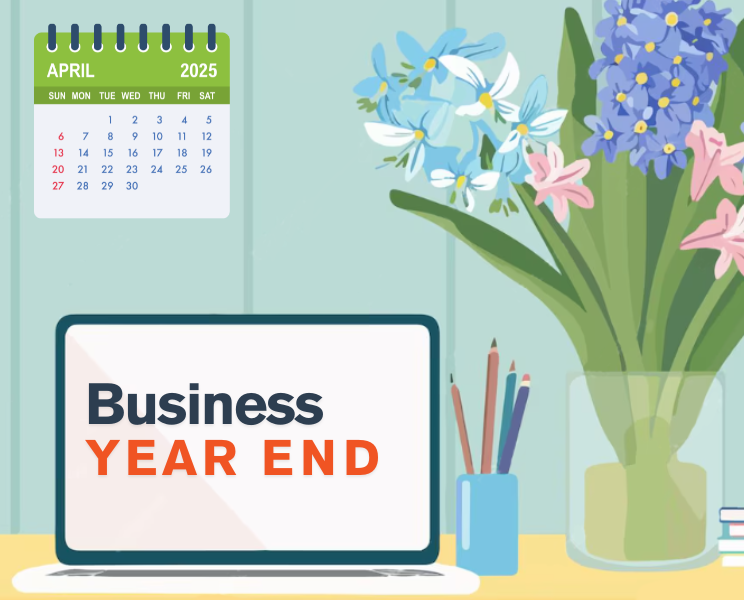What Scares New Business Owners?
Starting your own business and becoming an entrepreneur for the first time is an exciting, but scary prospect. There are so many things to consider when setting up a new business venture, but with a little help from us, there is nothing to be afraid of! Let’s start with some facts and then consider the top 3 things that scare business owners…
500,00 new businesses are started in Britain every year.
Small businesses make up 99% of the UK private sector.
40% of new businesses say tat their biggest challenge is managing their finances.
1. The tax Man AKA ‘The Boogie Man’
New businesses that have registered for VAT can start reclaiming VAT on expenses. On their first VAT return businesses may be able to reclaim VAT on purchases made as far as 4 years (for goods) and 6 months (for services) prior to their ‘effective date’ of registration.
A large reclaim of VAT from a first return may cause HMRC to undertake an investigation. You just need to be cautious:
- Check the dates on your purchases
- Ensure you have valid VAT invoices for all items on which you are claiming VAT
- A good online accounting platform like Xero can help you verify that everything has been correctly recorded
Then if HMRC do come calling, you can be confident that you have all the evidence to back up your claim.
VAT Registration
The current VAT registration threshold is £85,000. Registration is compulsory if your VATable income is above this threshold, but it is voluntary below the threshold.
Top Tips
- If your turnover in the previous 12 months exceeds the compulsory registration threshold or will exceed it within the following 30 day period then you must register. Failure to do so can result in penalties!
- It’s a good idea to set aside enough to cover all your taxes. You can be happily taking care of your business and then feeling the pinch when an unexpected tax bill creeps up on you!
- After registering you have to start charging VAT from the ‘effective date’ of registration, not the day you receive your certificate. It can take up to 30 days for it to arrive so make sure you start charging VAT at the correct point!
2. Creditors Creeping Up On You
You rely on good relations with creditors for the smooth operation of your business. Suppliers, the bank, and statutory bodies such as HMRC all affect the cash flow of your business.
When your cash flow is tight, you may not be able to pay your bills on time. If you manage the situation well, your creditors will have more trust and confidence in you than before. But managed badly, the situation can develop into a crisis.
What steps can I take?
Do your research – Do a little bit of looking around to make sure you are getting the best deal from your suppliers.
Agree contract terms – Writing a contract may be a tedious task but it will gives a clear view of terms and conditions as well as clarifying what is expected from all parties involved.
Communication – It’s best to be honest if you get into a sticky situation and let your creditors know you are taking measures to resolve any issues.
Paper trail – Keep a paper tail of all communication with your creditors. Always follow up phone calls with an email, it may come in handy to refer back to.
Call the experts! – Give us a call for expert advice on how you can manage your creditors and exhaust all options on what you can do.
Review internal process – Learn from your mistakes and create a contingency plan to avoid pitfalls.
Ensure you put sufficient money (‘working capital’) aside for a rainy day to help with the potential gap between the credit terms you offer to your customers and those offered by your suppliers. This often catches out fledgling businesses.
3. Disappearing Cash Flow
1 in 4 companies have trouble collecting payment from customers.
43% of those 1 in 4 companies have customers who are more than 90 days late on payment!
- Forecast
- Budget
- Stay on top of your debtors
- Ask for deposits or partial payments on large orders or long-term contracts
Cash is King
It doesn’t matter how good your business idea is, how talented your staff are or how amazing your marketing is, if you have cash flow problems you will be in trouble!
Forecasting is essential to keep track of your cash flow. There are great tools specifically designed for SME’s using cloud based technology to manage their accounts and cash flow, such as XERO.
A recent survey found that 31% of SME’s either rarely or never update their cash flow forecasts. That failure to plan can be catastrophic and no doubt plays a part in half of all UK start-ups failing within the first 5 years.
What else can I do?
It’s one thing to forecast but its another to ensure that you review and compare the variances as well, otherwise the forecasting was a waste of time! Also keep your reconciliations up to date so that you can keep track of your expenses and revenue in real time, then you can take immediate action on any variances



